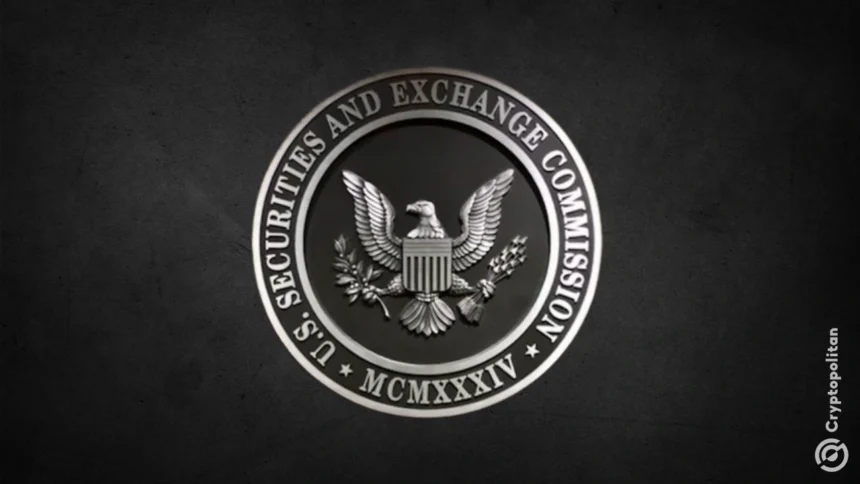The SEC has granted approval for the Hashdex Nasdaq Crypto Index US ETF to operate under newly established generic listing standards, allowing it to incorporate XRP, SOL, and XLM into its portfolio, which already includes Bitcoin (BTC) and Ethereum (ETH). This decision marks a significant step in the evolving landscape of cryptocurrency ETFs.
The ETF, designated NASDAQ:NCIQ, adjusted its trust structure last Thursday to comply with the updated regulations. The necessary modifications were officially filed under Form 8-K on Wednesday, which included a new “Third Amended and Restated Trust Agreement.” This new agreement was signed by Hashdex Asset Management Ltd. and CSC Delaware Trust Company, effectively replacing the prior second agreement. The trust is structured in Delaware and identified as an “emerging growth company.” Notably, the amended filing did not include changes to its fiscal year or any new financial documents but did confirm adherence to Nasdaq’s current listing requirements.
In the wake of the SEC’s recent vote to adopt these updated listing standards, several asset managers are poised for action. The new regulations enable qualified crypto ETFs to bypass the previous case-by-case review process that could extend up to 270 days, allowing for approvals in as little as 75 days. Steven McClurg, founder of Canary Capital Group, noted that there are currently about a dozen filings with the SEC, with more expected to follow. He expressed optimism about a “wave of launches” anticipated for the fourth quarter of 2025, a period that Jonathan Groth from DGIM Law characterized as potentially booming for cryptocurrency ETFs.
This surge of interest began in July when the SEC first proposed the changes, prompting firms to quickly adapt their filings and address feedback from the SEC. Insights suggest that final updates could be submitted imminently. Teddy Fusaro, president of Bitwise, indicated that most existing filings are close to completing the review phase, with expectations for ETFs tracking SOL and XRP to debut in early October.
To qualify for the expedited approval process under the new rules, ETFs must satisfy at least one of three main criteria: the crypto asset must trade on a regulated exchange or have CFTC-regulated futures contracts that have been active for a minimum of six months; another ETF must already hold that crypto asset with at least 40% of its assets directly invested in it without using swaps or options; or if any of these conditions are met, the ETF can avoid extensive regulatory red tape.
However, not all firms are prepared to move forward. Kyle DaCruz, head of digital assets at VanEck, highlighted that their existing filings may not all qualify under the new standards, necessitating discussions with legal counsel regarding which products can progress and how quickly they can be launched.
In contrast, Grayscale Investments acted swiftly, converting its private fund into a public offering shortly after the SEC’s announcement. The Grayscale CoinDesk Crypto 5 ETF (GDLC.P) now encompasses BTC, ETH, XRP, SOL, and Cardano. Peter Mintzberg, the CEO of Grayscale, emphasized that their rapid launch reflects a commitment to public market access, regulatory clarity, and innovation in product offerings.
As the market anticipates the launch of new ETFs, a looming question remains: will investors show interest in ETFs associated with lesser-known cryptocurrencies? DaCruz cautioned that while established coins like BTC have garnered trust over years, many of the emerging tokens may face challenges, requiring comprehensive investor education in a much shorter timeframe.







